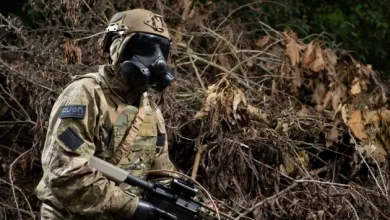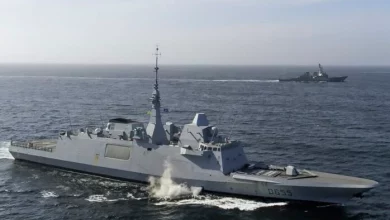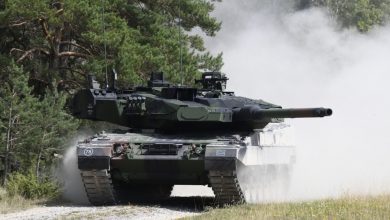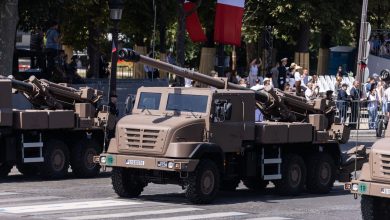Azerbaijan conducts anti-terrorist operation in Karabakh
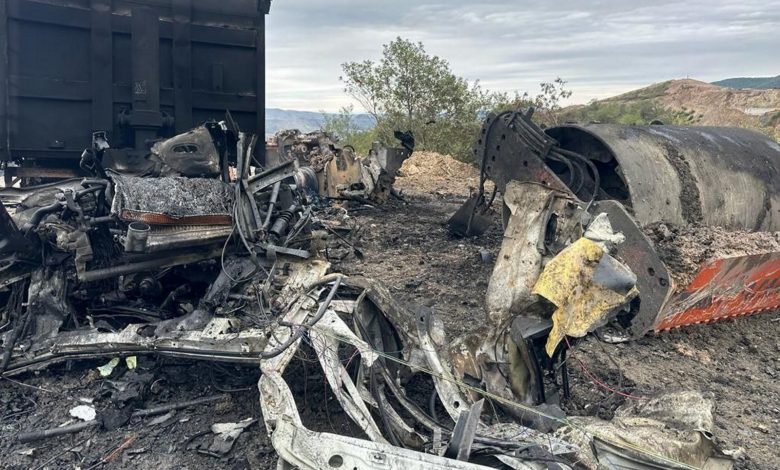
Azerbaijan has kicked off an anti-terrorism operation to “restore constitutional structure” in Karabakh, nearly three years after fighting a brief but brutal war with Armenia over the mountainous region.
“The aim is to ensure Armenian forces withdraw from sovereign Azerbaijani territory, large-scale provocations are suppressed and the provisions of the 2020 trilateral deal are fulfilled,” the country’s Defense Ministry announced Tuesday, meaning the treaty that ended the Second Karabakh War.
Karabakh authorities reported rockets and artillery fire along the entire frontline around the mountain enclave while Baku assured a humanitarian corridor was established on Lachin road — the only land route connecting Armenia to Karabakh — and other directions for the evacuation of Karabakh civilians.
“The separatist regime in Karabakh must be dissolved,” the Azerbaijani Foreign Ministry said in a separate statement, stressing that the “only way” for peace in the region is “the complete withdrawal of Armenian forces.”
Karabakh is a longstanding source of strain between the South Caucasus neighbors, which fought two wars over the territory – first in the early 1990s and again in 2020 when Azerbaijan liberated several cities, villages and settlements from illegal Armenian occupation during 44 days of clashes.
Fears of a fresh war have been building in recent months with Armenia accusing Azerbaijan of a troop build-up and decrying a blockade of the Lachin corridor.
“Localised anti-terrorist measures have been launched in the region,” Azerbaijan’s defense ministry said, accusing Armenian-backed forces of repeated shelling and incursions.
Baku said it was using precision weapons to target Armenian military positions and facilities used by separatists.
“We reiterate that the civilian population and civilian infrastructure are not targets,” the statement said.
Azerbaijan justified the mission citing “systematic” shelling by Armenian-backed forces, accusing them of carrying out “reconnaissance activities” and fortifying defensive positions.
“There is also the strengthening of combat positions with personnel, armored vehicles, artillery and other weapons,” Azerbaijan said, accusing separatists of “a high level of combat readiness”.
Regional power brokers Russia and Türkiye had been informed about Azerbaijan’s military activities in Karabakh, Baku said.
It also said Azerbaijani Defense Minister Zakir Hasanov informed his Turkish counterpart Yaşar Güler over the phone about the operation in Karabakh.
“‘Türkiye stands with Azerbaijan as it always has,’ Güler assured Hasanov,” Baku noted.
Moscow meanwhile asked the parties to the conflict to respect a peace accord and end the “bloodshed”.
“We know what needs to be done to resolve the situation… to implement everything we agreed on, not to provoke the situation, to work towards calming it down and resolving it,” Foreign Ministry Spokesperson Maria Zakharova told reporters Tuesday.
Mine blasts
Azerbaijan’s statement came just hours after it said four police officers and two civilians were killed in mine blasts in Karabakh, with authorities blaming separatists.
The deaths at dawn came after Armenian separatists said they had reached an agreement with Azerbaijani authorities to resume aid deliveries to Karabakh.
Baku’s security services said two civilians had died in the Khodzhaveskiy distinct and four police officers were killed in another mine explosion en route to the site.
Their vehicle hit “a mine laid on a tunnel road under construction by illegal Armenian armed groups,” a statement said.
Azerbaijan said the incident took place “in the zone of temporary deployment of the Russian peacekeeping contingent,” despatched by Moscow in 2020 as part of a ceasefire deal between Armenia and Azerbaijan.
Azerbaijan said the police officers were killed on the road to Azerbaijani-controlled Shusha, recaptured from separatists in 2020.
In the six-week 2020 war, Azerbaijan regained control of key areas of Karabakh, including the culturally revered town of Shusha.
But other parts of the region, including the main city of Stepanakert, remain under the control of Armenian separatists.
Azerbaijan said the road to Shusha was built after it captured pockets of land from Armenia in 2020.
“During the construction of the road, the area along the route was cleared of mines,” Baku said.
Karabakh is heavily mined. Over the last three decades, hundreds of Azerbaijanis have been wounded or killed by landmines laid by Armenian forces.
Azerbaijan said Tuesday more than 300 of its nationals have been wounded or killed by mines since 2020.
Both Azerbaijani and Armenian militaries used them during a bloody conflict in the early 1990s.
Azerbaijani President Ilham Aliyev has said that landmines were the main obstacle impeding the return of displaced people to territories retaken from Armenian separatists in 2020.


